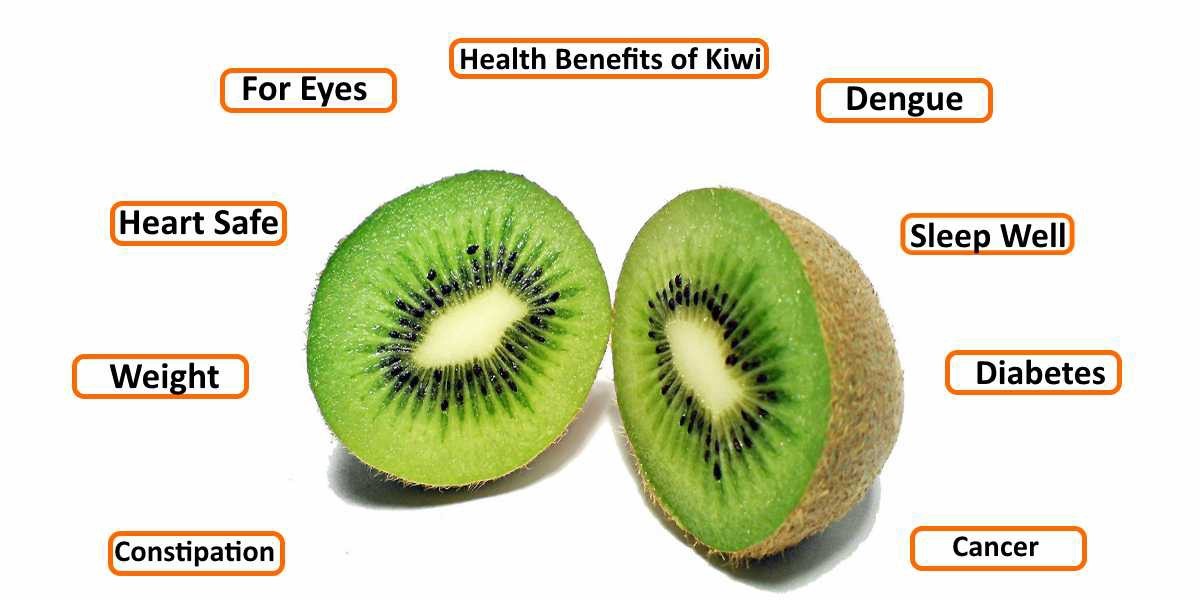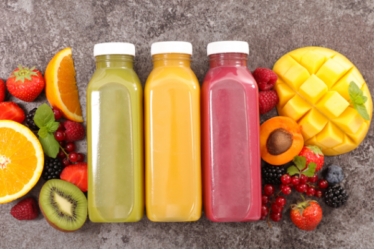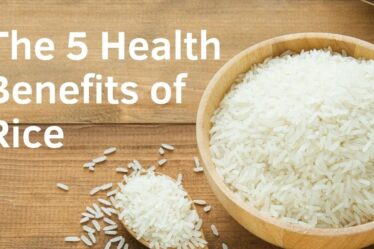
While apple may be the most well-known “wonder fruit,” kiwi is just as beneficial due to its high vitamin and mineral content and multiple uses in improving health.
Compared to other fruits, kiwis stand out for more than just their unique appearance; they also offer a WEALTHY HOOD of health benefits. Both its attractive appearance and its pleasantly crisp taste have made it a popular fruit option. Its medicinal virtues have made it highly sought after since ancient times, and some believe its origins lie in China. Bright green slices with tiny black seeds have been used for centuries in garnishing sweets and fruit platters.
Originally known as the yang Tao and Chinese gooseberry, the kiwi eventually became the national fruit of New Zealand and was reinstated to the biosphere under its current name. Apparently it was brought to New Zealand by missionaries, where it quickly became a national favorite and led to its commercial cultivation and branding as the “kiwi” (bearing close resemblance to their national bird). Americans and Europeans quickly followed suit, using it in various breakfast bowls of cereal, desserts, and other foods. Including kiwis in your regular diet has been shown to have numerous positive effects on health.
Kiwi, considered an exotic fruit, is frequently used as a garnish for Pavlov’s and other desserts and fruit bowls, salads, and smoothies. It is almost seldom cooked, and when it is, it is usually used fresh in sweets since an enzyme in it swiftly breaks down milk proteins. For this aim, it is frequently added to roasts and curries as a tenderizing agent for the meats. Though, it is recommended that you consume it on its own as fresh fruit to benefit from its nutrients fully.
The US Department of Farming (USDA) reports that one serving of kiwifruit (100 grimes) has 61 calories, 14.66 grams of sugars, 1.14 grams of protein, 0.52 grams of fat, and 3 grams of fiber. The unique appearance and flavor of the kiwifruit are also well-known. Kiwi is a juicy and refreshing fruit with a sweet and acidic taste, and it has fuzzy brown skin and shiny brilliant green flesh.
Health Perks of Eating Kiwi Fruit
While apple gets all the glory as the “wonder fruit,” kiwi also provides a significant nutritional boost thanks to its high vitamin and mineral content. Some advantages of kiwi fruit are as follows:
1. Superior Vitamin C Content
You’d be wrong to assume that citrus fruits like lemons and oranges are the best places to become your daily dose of vitamin C. The vitamin C content of kiwi fruit is 154 percent higher than that of lemons and oranges per 100 grams, according to the fruit’s nutrient breakdown. Vitamin C’s potent antioxidant effects neutralize the free radicals that could cause inflammation or cancer. Additionally, it aids in strengthening the body’s defenses against infectious diseases.
2. Chemicals that Cause Sleep
Struggling to get to sleep? Having two kiwis an hour before bedtime is said to be very helpful in inducing sleep, based on research conducted by Taipei Medical University, which states, “Numerous studies have revealed that kiwi fruit covers many medicinally useful compounds, among which antioxidants and serotonin may be beneficial in the treatment of sleep disorders.”
3. High-Quality Fiber Content; a Healthy Addition to Any Diet
The high fiber content of this exotic fruit makes it useful for illness prevention. The University of Leeds found that “increasing consumption of fiber-rich foods can reduce risks of both cardiovascular disease (CVD) and coronary heart disease (CHD).” The University of Massachusetts Medical University found that high-fiber foods make people feel full for longer and help regulate metabolic markers like blood pressure, cholesterol, and blood sugar. It’s commonly advised for diabetics and helps with weight loss as a bonus.
4. Aids in Stomach Function
Like papain in papaya, the enzyme actinide in kiwis can break down proteins. Since of this, it is a common element in meat tenderizers. As a bonus, it aids in the digestion of proteins and has been shown to help those with irritable bowel syndrome.
5. Folate Present in This Food Is a Good Source
The Chinese revered the kiwi for its healing abilities for a good cause. It’s recommended for expecting mothers because folate plays a role in fetal health and development. It’s also thought to be beneficial for kids as they develop.
6. Rich Source of Nutrients
Kiwi fruit is an excellent source of many nutrients, including vitamins A, B6, and E, and minerals like potassium, calcium, iron, and magnesium. These factors aid blood flow through the vessels, stress reduction, iron absorption for strong bones and teeth, clear vision, etc. Magnesium aids nerve and muscle functions, while potassium (312 mg per 100 grams) aids in maintaining blood pressure.
7. Excellent Skin
Considering how frequently we consume acidic foods, it’s good to know that kiwi’s alkaline properties can help mitigate their adverse effects. Maintaining a healthy pH balance is essential for optimal health and vitality. Antioxidant vitamins C and E found in kiwis are lauded for their beneficial effects on skin health. You can get decent consequences by applying a few slices directly to your skin.
Omega-3 fatty acids, carotenoids, polyphenols, and heart health are some benefits of eating kiwi fruits. That is to say, eating more kiwis will improve your health in countless ways because of their many positive qualities.
Utilizing Kiwi Fruit in Formulae
Here are some easy formulae to get you ongoing if you’re seeking new ways to incorporate kiwi fruit into your diet:
1. Blended Melons and Kiwis
Blending up some kiwi, melon, honey, milk, and oats is Vicky Ratnani, who then pours the resulting “power shake” into a glass and drinks it. The two go together beautifully.
2. Grilled Prawns and Kiwi Salad with a Spicy Dressing
Combination of prawns, almonds, kiwi, herbs, and dressing, topped with mushrooms. A sweet and easy snack.
3. New Zealand’s version of Pavlova
The Pavlova is the national pudding of New Zealand. Cheers, Nikhil and Natasha create their own Pavlov using pistachio-almond meringue and kiwis.



